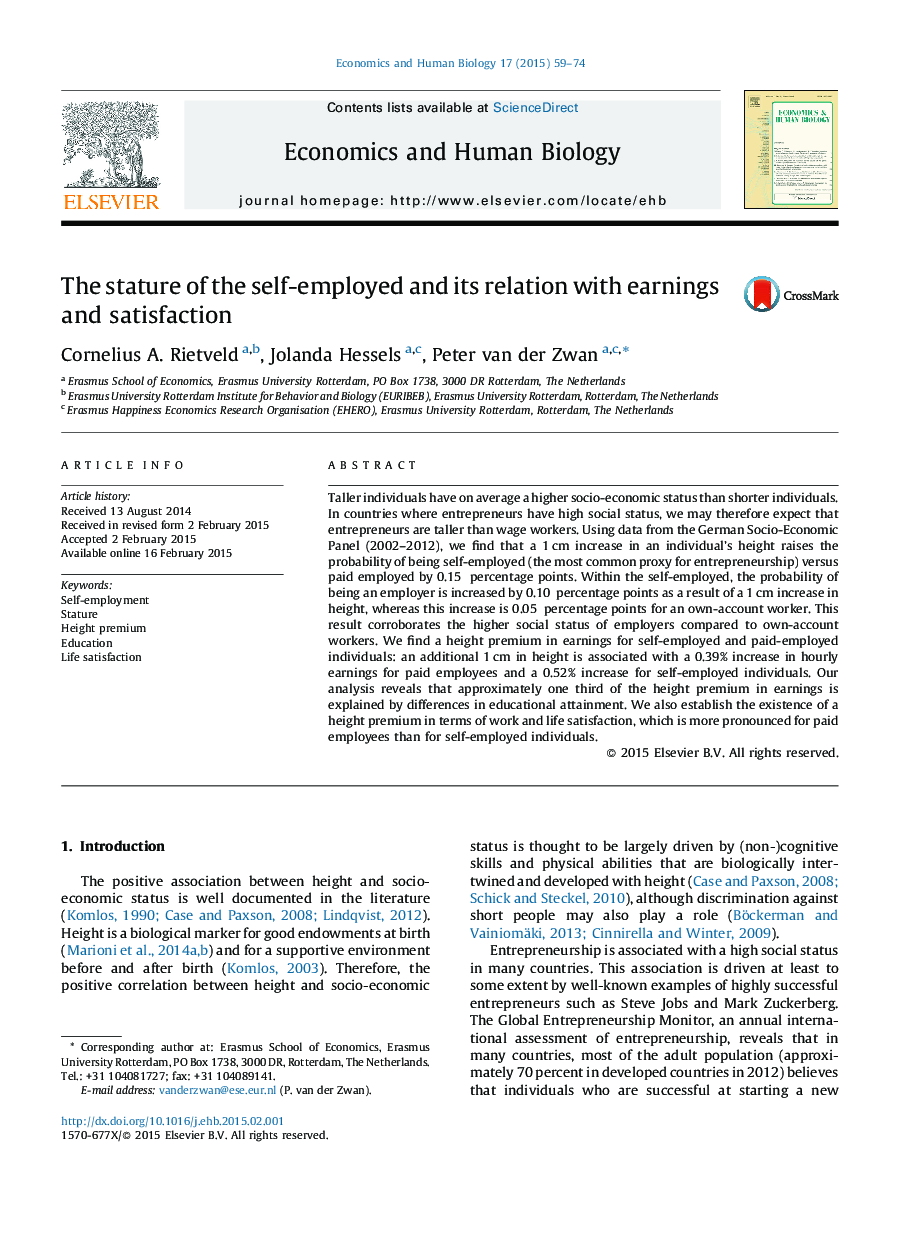| Article ID | Journal | Published Year | Pages | File Type |
|---|---|---|---|---|
| 5057046 | Economics & Human Biology | 2015 | 16 Pages |
â¢Data from the German Socio-Economic Panel (2002-2012) are used.â¢A 1 cm increase in height raises the probability of being self-employed versus paid employed by 0.15%-points.â¢A 1 cm increase in height is associated with a 0.39% and 0.52% hourly earnings increase for the paid employed and self-employed, respectively.â¢A height premium in terms of work and life satisfaction exists for paid employees.â¢28% to 42% of the height premium in earnings is explained by differences in educational attainment.
Taller individuals have on average a higher socio-economic status than shorter individuals. In countries where entrepreneurs have high social status, we may therefore expect that entrepreneurs are taller than wage workers. Using data from the German Socio-Economic Panel (2002-2012), we find that a 1Â cm increase in an individual's height raises the probability of being self-employed (the most common proxy for entrepreneurship) versus paid employed by 0.15 percentage points. Within the self-employed, the probability of being an employer is increased by 0.10 percentage points as a result of a 1Â cm increase in height, whereas this increase is 0.05 percentage points for an own-account worker. This result corroborates the higher social status of employers compared to own-account workers. We find a height premium in earnings for self-employed and paid-employed individuals: an additional 1Â cm in height is associated with a 0.39% increase in hourly earnings for paid employees and a 0.52% increase for self-employed individuals. Our analysis reveals that approximately one third of the height premium in earnings is explained by differences in educational attainment. We also establish the existence of a height premium in terms of work and life satisfaction, which is more pronounced for paid employees than for self-employed individuals.
